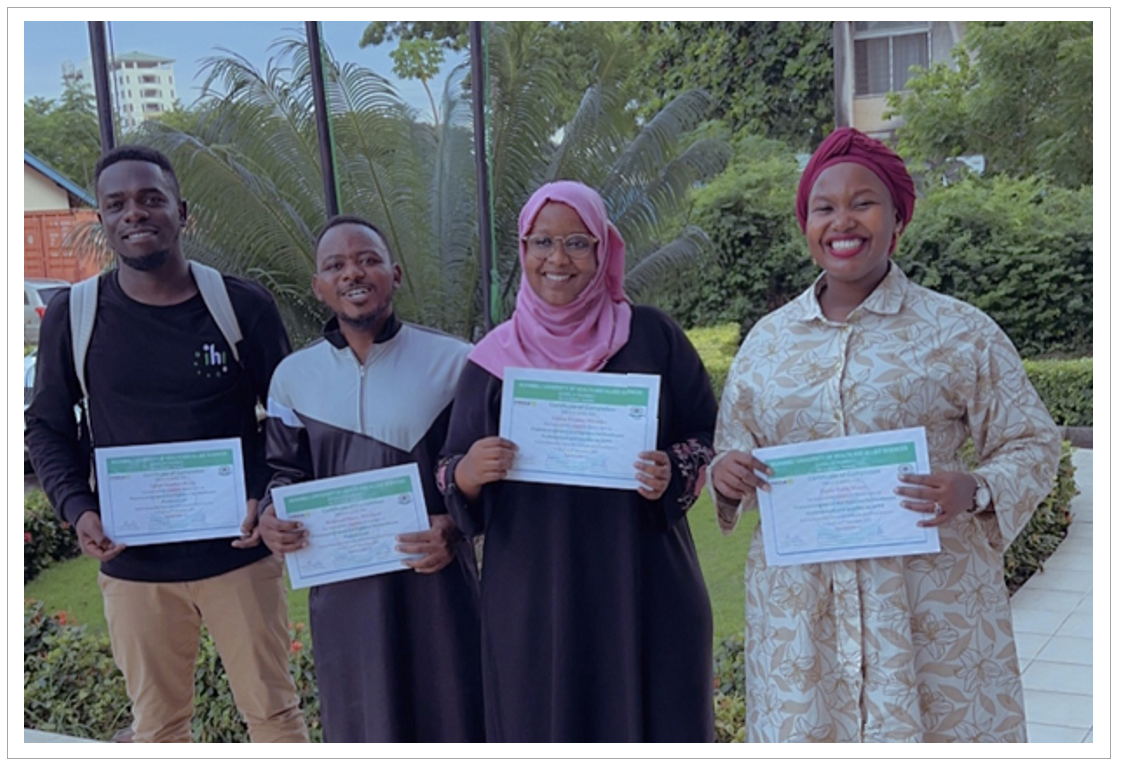
TRAINING: Ifakara sharpens critical patient safety skills

From December 4-8, 2023, Ifakara Health Institute took part in a 5-day Pharmacovigilance and Vigilance Training facilitated by Muhimbili University of Health and Allied Sciences (MUHAS) and the Tanzania Medicines and Medical Devices Authority (TMDA).
The ultimate goal was to empower participants with skills for safe and effective use of medicines by establishing robust reporting and response systems to undesired side effects, known as "adverse drug reactions" (ADRs), and facilitating swift and appropriate actions.
Pharmacovigilance explained
According to the World Health Organisation (WHO), medicines and vaccines have transformed the prevention and treatment of diseases, however they also have side effects, some of which may be undesirable and / or unexpected.
Pharmacovigilance is the science and activities relating to the detection, assessment, understanding and prevention of adverse effects or any other medicine/vaccine related problem.
Learn more about this here
Training design
Ifakara Pharmacists Egbert Stanslaus, Mohamed Mohamed, Ashura Mirambo, and Hania Msami benefitted from the training designed to empower healthcare professionals with essential skills, knowledge, and attitudes for effective pharmacovigilance.
The program covered key topics, including understanding principles, exploring adverse events, organizational frameworks, regulatory requirements, good pharmacovigilance practices, vaccine safety surveillance, and effective communication.
Mode of instruction
The course, held at the Department of Pharmaceutics and Pharmacy Practice, School of Pharmacy at MUHAS, offered a dynamic learning experience through varied methods such as lectures, assignments, discussions, and hands-on exercises.
Facilitated by experts from MUHAS and TMDA, the faculty brought extensive practical knowledge, enriching participants' understanding of pharmacovigilance concepts.
This training is crucial in enhancing patient safety and public health. By equipping healthcare professionals with the necessary tools and knowledge to not not only be responsive but proactive in safeguarding the well-being of those they serve.
